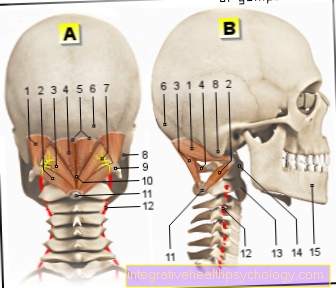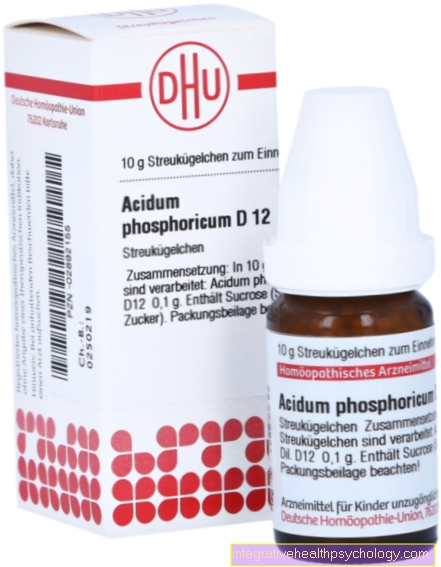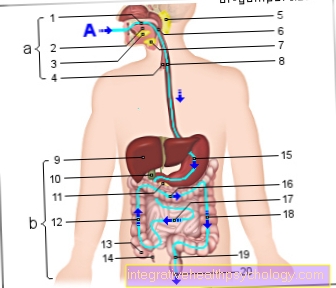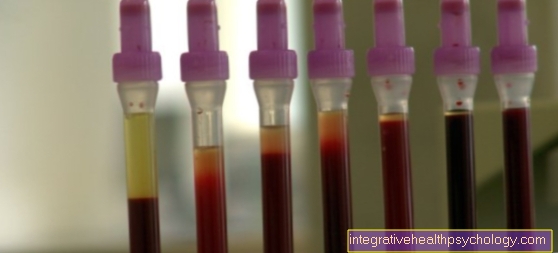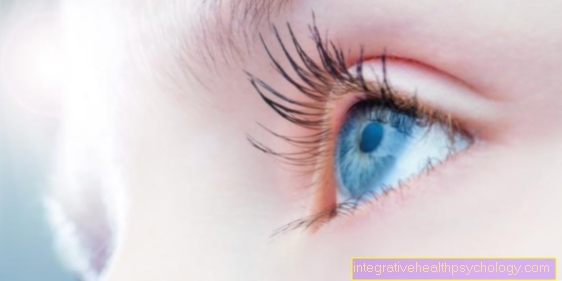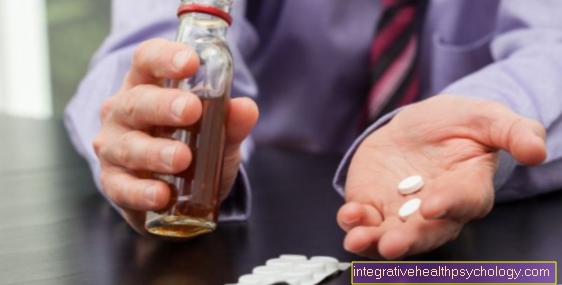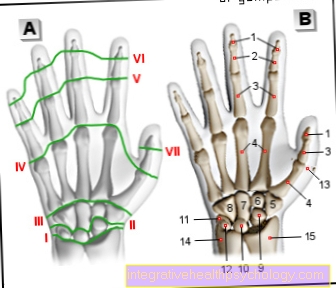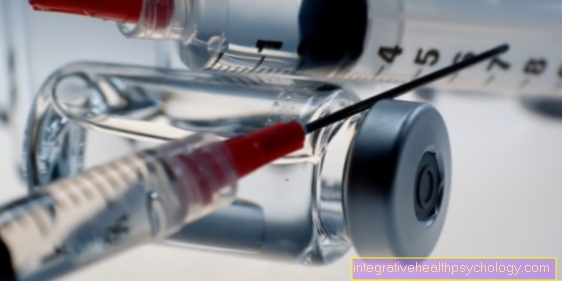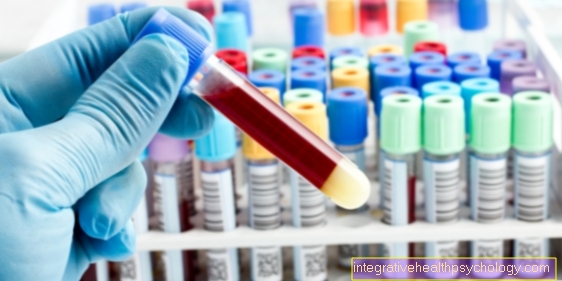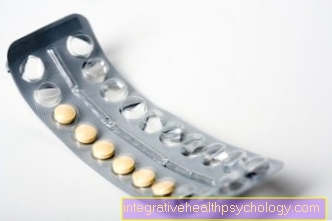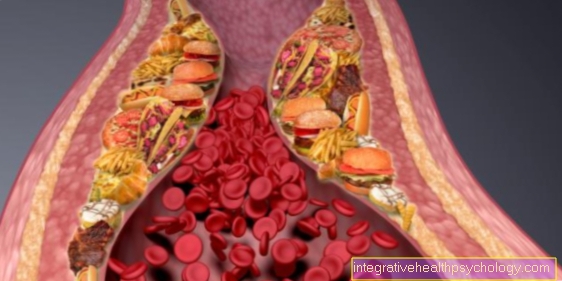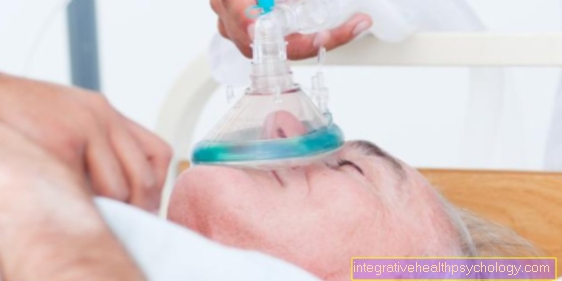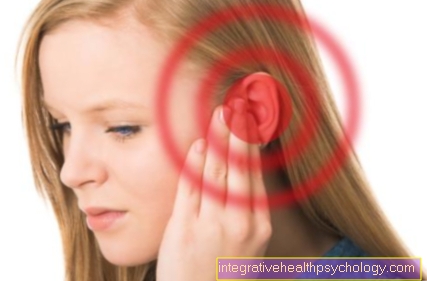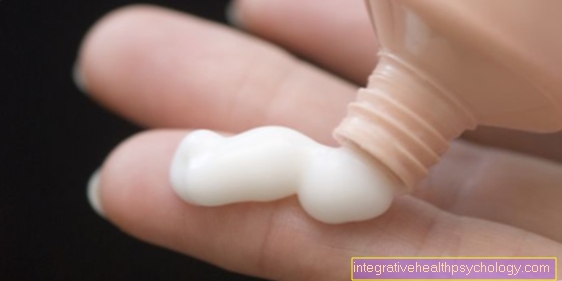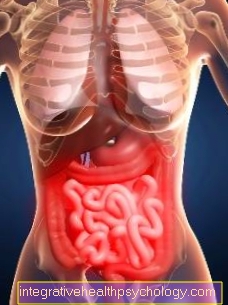Lithium and alcohol - are they compatible?
introduction

Lithium is a drug from the field of psychotropic drugs that are used in the context of mental illness. It is used in the treatment of mania, in the context of the prevention of so-called bipolar affective disorders, in the treatment of certain forms of depression or also for a certain type of headache, namely the so-called cluster headache.
Mania is a mental illness in which the patient has an extremely cheerful and bright mood, which is rather disproportionate to the situation. It can be seen as the opposite of depression. Bipolar affective disorder is characterized by the regular alternation of depression and mania. In order to be able to achieve its full effectiveness in treatment, lithium needs a certain level of active substance in the blood. This is 0.5-1.2 mmol / l. It should be noted that lithium has a so-called narrow therapeutic range. This means that the dose from the onset of action and the dose that leads to the poisoning with lithium are very close to one another and therefore the lithium level in the blood must be checked at regular intervals. It is also important to start treatment with lithium in a gradual dose.
Interactions
Since the drug lithium has a particularly narrow range from the beginning of the spectrum of activity to poisoning with the active ingredient, it is particularly important to watch out for interactions with other drugs that are taken in parallel. By and large, it can be said that when taking lithium, other medications should always be taken with special care.
The lithium level can be raised or lowered by various drugs, neither of which is good for the patient. If the lithium level drops, the patient does not feel any effect and the intake is therefore pointless.
If the lithium level is increased, there is a risk of poisoning and the resulting symptoms and their consequences. The lithium level in the blood is increased by a number of different drugs. These drugs include the antibiotic metronidazole and some drugs that are usually used to lower blood pressure. The group of so-called ACE inhibitors and angiotensin-2 receptor antagonists should be mentioned in particular. The painkillers from the group of non-steroidal anti-inflammatory drugs, which include diclofenac and indomethacin, can also raise the lithium level. Water tablets, medically called diuretics, change the excretion of water from the body and thus also have an influence on the excretion of lithium from the body. They reduce the excretion and thereby increase the lithium level.
Medicines that, when taken at the same time as lithium, lower the lithium level in the blood include osmotically effective water medicines and xanthine-containing preparations.
Metabolism of lithium and simultaneous consumption of lithium and alcohol
The main route of excretion of lithium from the body is through the kidneys. Just as lithium is absorbed by the body when it is ingested, it is ultimately excreted again. It is not metabolized and its structure is therefore not changed, but is excreted in the urine completely unchanged. It is therefore important that the kidney is functioning properly and producing sufficient urine. To determine the efficiency of the kidney, the so-called GFR (glomerular filtration rate) are used. It is a guideline for how well the kidneys can excrete certain substances from the blood through urine production. If the kidneys no longer function properly, the excretion of lithium from the body is restricted. The liver function does not play an important role in the lithium excretion, so that the dose of lithium does not have to be adjusted to the liver function.
If you now ask yourself whether you can drink alcohol while taking lithium and whether they are compatible with each other, you must first say that when you take lithium and alcohol at the same time significantly increases the effect of alcohol, as the tolerance to alcohol is reduced. The liver damaging effect from regular Alcohol consumption with the subsequent connective tissue remodeling of the liver structure plays but in terms of lithium not matterbecause it is eliminated through the kidneys alone.
Compatibility of lithium and alcohol
With the compatibility of lithium and alcohol, the patient must also be made aware of a significant impairment of his ability to react and the associated impairment of his ability to drive. Both lithium and alcohol can reduce the reactivity. If both are now taken in parallel, then the Responsiveness decreased even more than when using alcohol or lithium alone.

